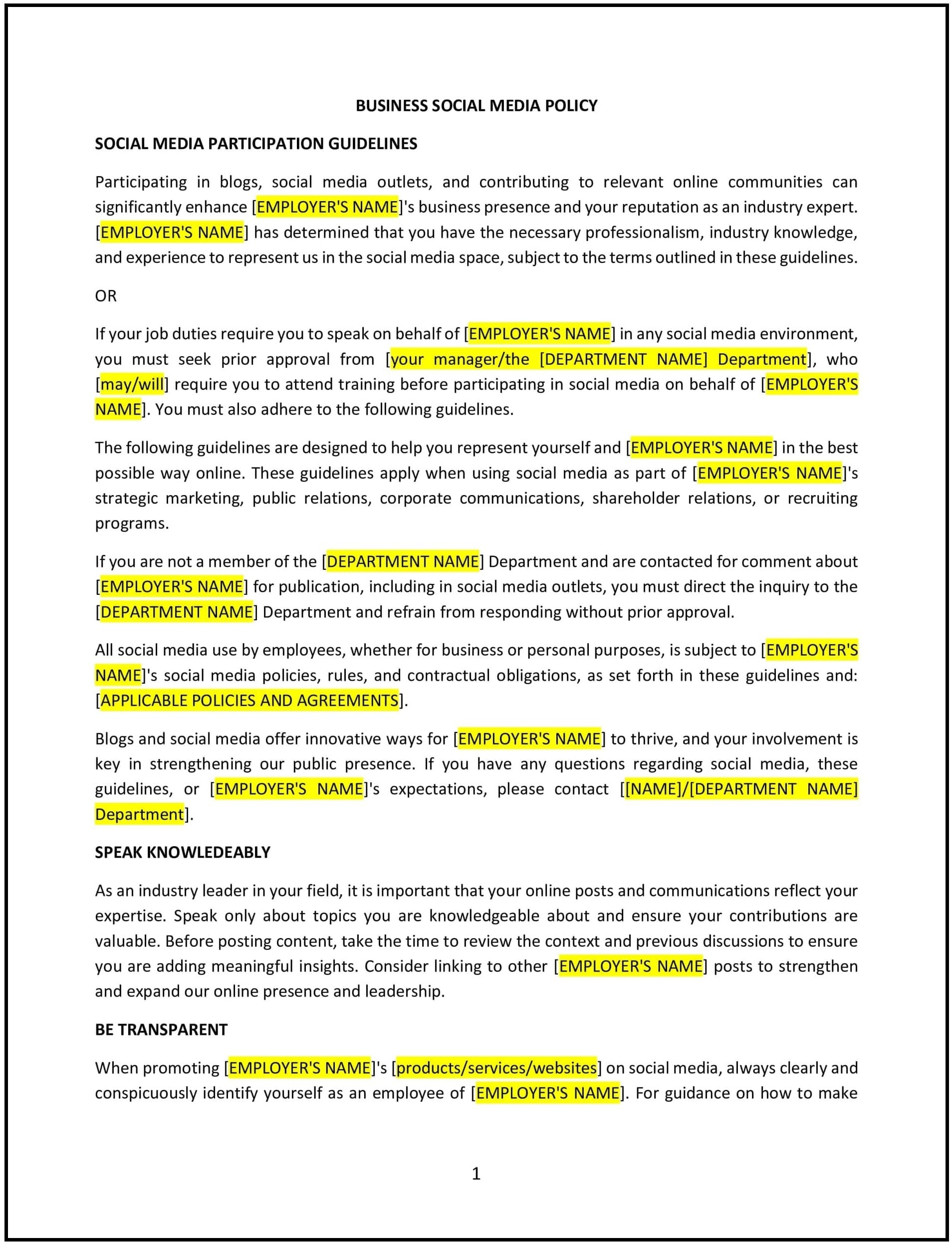Business social media policy (North Carolina): Free template
Got contracts to review? While you're here for policies, let Cobrief make contract review effortless—start your free review now.

Customize this template for free
Business social media policy (North Carolina)
A business social media policy helps North Carolina businesses manage employees’ use of social media for both professional and personal purposes. The policy establishes guidelines for representing the company online, using social media responsibly, and maintaining the company’s reputation while ensuring compliance with legal and ethical standards. It also addresses how employees should handle confidential information, avoid conflicts of interest, and follow company policies on online conduct.
By adopting this policy, businesses can protect their brand, ensure consistent messaging, and maintain a respectful, professional online presence.
How to use this business social media policy (North Carolina)
- Define acceptable online behavior: Establish guidelines for how employees should behave on social media, including rules for professionalism, tone, and content.
- Set boundaries for personal and professional use: Specify the line between personal and professional social media use, including whether employees can identify themselves as company employees on personal social media accounts.
- Address confidentiality and privacy: Ensure employees understand the importance of protecting company secrets, intellectual property, and client information when posting online.
- Provide guidance on handling customer complaints: Set expectations for employees on how to respond to customer complaints, ensuring that responses align with the company’s communication standards.
- Reflect North Carolina-specific considerations: Ensure the policy aligns with state laws related to online privacy, defamation, and other legal concerns in the social media space.
Benefits of using this business social media policy (North Carolina)
This policy provides several benefits for North Carolina businesses:
- Protects the company’s reputation: Clear guidelines for social media use help protect the company’s image and prevent employees from posting content that could harm the brand.
- Ensures consistent messaging: The policy helps ensure that employees communicate the company’s message consistently, both online and offline.
- Reduces legal risks: A well-defined policy helps businesses minimize the risk of legal issues, such as defamation, breach of confidentiality, or harassment claims resulting from social media posts.
- Promotes responsible online behavior: Employees are encouraged to use social media responsibly, protecting their own reputation and that of the company.
- Supports compliance with state laws: The policy ensures compliance with North Carolina’s laws related to online conduct, privacy, and data protection.
Tips for using this business social media policy (North Carolina)
- Communicate the policy clearly: Ensure employees understand the policy’s guidelines for social media use. This should be part of the employee handbook and included in onboarding training.
- Provide regular training: Conduct periodic training on responsible social media use, including potential legal risks and best practices for maintaining a professional online presence.
- Monitor online activity: Regularly review the company’s social media presence and address any concerns or violations of the policy.
- Review the policy regularly: The policy should be updated to reflect changes in North Carolina’s laws, technology, or social media trends.